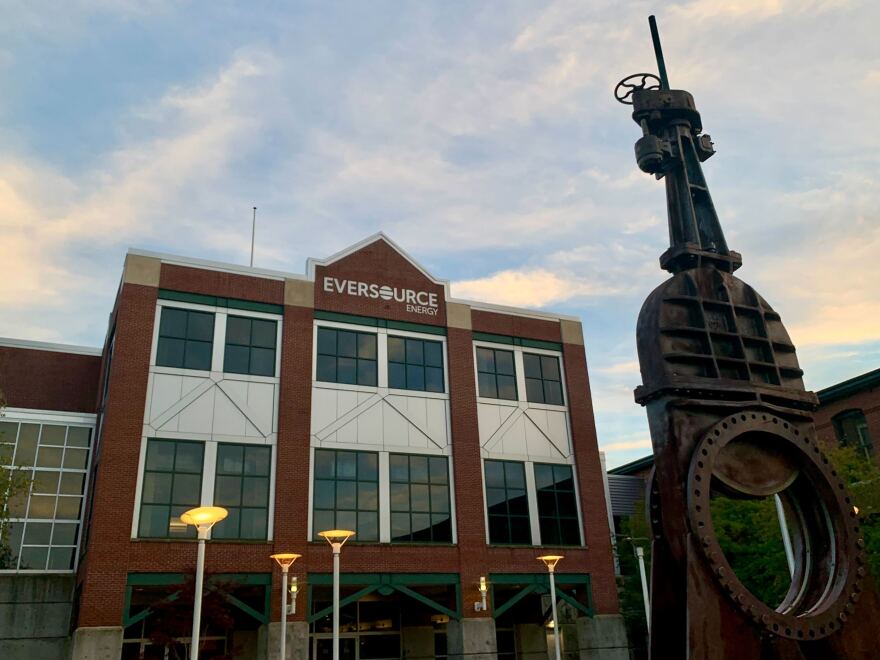New Hampshire residents who buy their electricity through Eversource could see a slight decrease on their electricity bills come February.
The company filed new rate proposals with the state’s Public Utilities Commission Thursday afternoon, after warning commissioners that failures in wholesale energy markets could make it difficult for them to buy enough electricity for their customers using their normal process.
Ultimately, the company was able to buy enough power to cover all of their small customers – the residential ratepayers who use Eversource’s default service and small businesses.
The new rate for small customers – about 20 cents per kilowatt hour – is slightly less than the 22.5 cents Granite Staters are currently paying, but still double what customers paid in February of this year. Eversource says the average customer can expect their bill to go down about 7%.
Eversource was not able to procure enough power to cover the needs of their large customers who use default service, like large businesses or manufacturers.
And, the company told commissioners, the decrease in the residential rate has more to do with good timing than market trends.
“Currently, the only market trend is persistent volatility,” an Eversource representative told the commission during testimony Thursday.
Granite Staters who need assistance with their electricity bills can reach out to their local community action agency. Contact information can be found here.
How the process works
Electric bills are split into two parts: supply and delivery. The supply charge represents the cost of the actual power, and that’s what’s been skyrocketing across New England. (The delivery charge covers how much it costs to get that power where it needs to go.)
Eversource, like Liberty Utilities and Unitil, changes their supply rates twice a year in New Hampshire after an auction where they buy electricity from wholesale suppliers. The utilities don’t make a profit from the supply portion of the bill, they just pass the cost through to consumers.
In New Hampshire, any ratepayer can choose a third-party energy supplier if they don’t want their supply rate to come through their utility. About 84% of residential Eversource customers in New Hampshire use default energy service, along with 31% of commercial customers, and under 7% of industrial customers, according to testimony from the company.
Before the auction, Eversource warned the Public Utilities Commission that it might not get enough bids to cover all the electricity those customers need, or the bids might be far above a reasonable price.
Energy prices have been rising globally in large part due to the war in Ukraine. That’s created volatility across the energy sector.
Ultimately, Eversource got plenty of bids for the small customer group. The company said the success of the auction for that group could be due to the way they split up the load into smaller pieces for wholesale suppliers to bid on. Or, they said, it could be a result of the company making clear that they would reject bids that were unreasonably high.
Timing was a major factor, the company told the Public Utilities Commission – prices dropped days before the auction. But they also made clear that doesn’t signal a stable downward trend.
For the large customer group – which only has about 100 customers in the state, according to Eversource – the results were closer to what the company anticipated.
Wholesale suppliers only offered one bid, which covers half of the electricity needs of that customer group, and the price of that bid was more than what the company had calculated as a baseline. The company still urged commissioners to approve that rate, saying if they rejected the rate, it could make future auctions more difficult.
Wholesalers are less compelled to bid on covering large customer demand, the company said, because it’s relatively small and there’s a high chance customers could move to different energy suppliers.
The company plans to try buying power to cover the second half of that demand again, hoping to issue a request for more bids next week. Following that, they would file new rates for large customers in mid-January.
With approval from the Public Utilities Commission, the company could also buy power a different way, bidding directly into the region’s wholesale markets. The New Hampshire Department of Energy said last month that this way of buying power could expose customers to more price swings and extra costs.
“Our customers in New Hampshire have already faced the unprecedented impact of all-time high energy supply costs earlier than most this year, and we know how frustrated they are as rising costs for other basic, daily needs persist throughout the economy as well,” Eversource Executive Vice President Penni Conner said in a written statement. “While this decrease in electric supply costs is encouraging, global market volatility continues to keep prices near all-time highs and pose significant challenges for our customers.”








